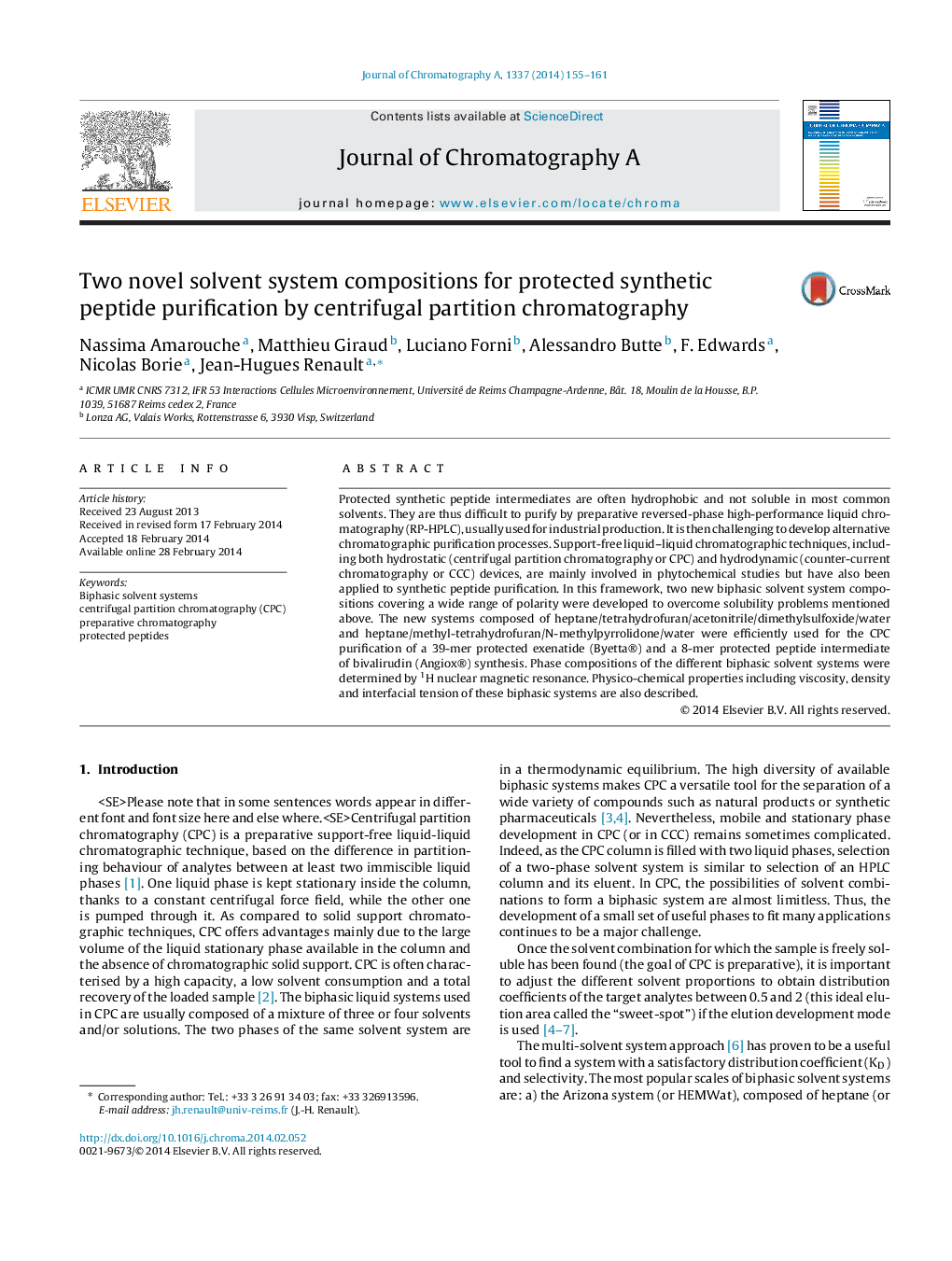| Article ID | Journal | Published Year | Pages | File Type |
|---|---|---|---|---|
| 7613587 | Journal of Chromatography A | 2014 | 7 Pages |
Abstract
Protected synthetic peptide intermediates are often hydrophobic and not soluble in most common solvents. They are thus difficult to purify by preparative reversed-phase high-performance liquid chromatography (RP-HPLC), usually used for industrial production. It is then challenging to develop alternative chromatographic purification processes. Support-free liquid-liquid chromatographic techniques, including both hydrostatic (centrifugal partition chromatography or CPC) and hydrodynamic (counter-current chromatography or CCC) devices, are mainly involved in phytochemical studies but have also been applied to synthetic peptide purification. In this framework, two new biphasic solvent system compositions covering a wide range of polarity were developed to overcome solubility problems mentioned above. The new systems composed of heptane/tetrahydrofuran/acetonitrile/dimethylsulfoxide/water and heptane/methyl-tetrahydrofuran/N-methylpyrrolidone/water were efficiently used for the CPC purification of a 39-mer protected exenatide (Byetta®) and a 8-mer protected peptide intermediate of bivalirudin (Angiox®) synthesis. Phase compositions of the different biphasic solvent systems were determined by 1H nuclear magnetic resonance. Physico-chemical properties including viscosity, density and interfacial tension of these biphasic systems are also described.
Related Topics
Physical Sciences and Engineering
Chemistry
Analytical Chemistry
Authors
Nassima Amarouche, Matthieu Giraud, Luciano Forni, Alessandro Butte, F. Edwards, Nicolas Borie, Jean-Hugues Renault,
